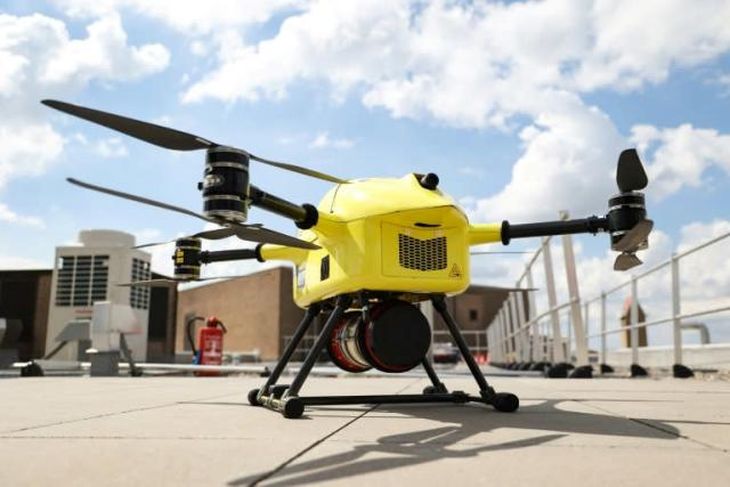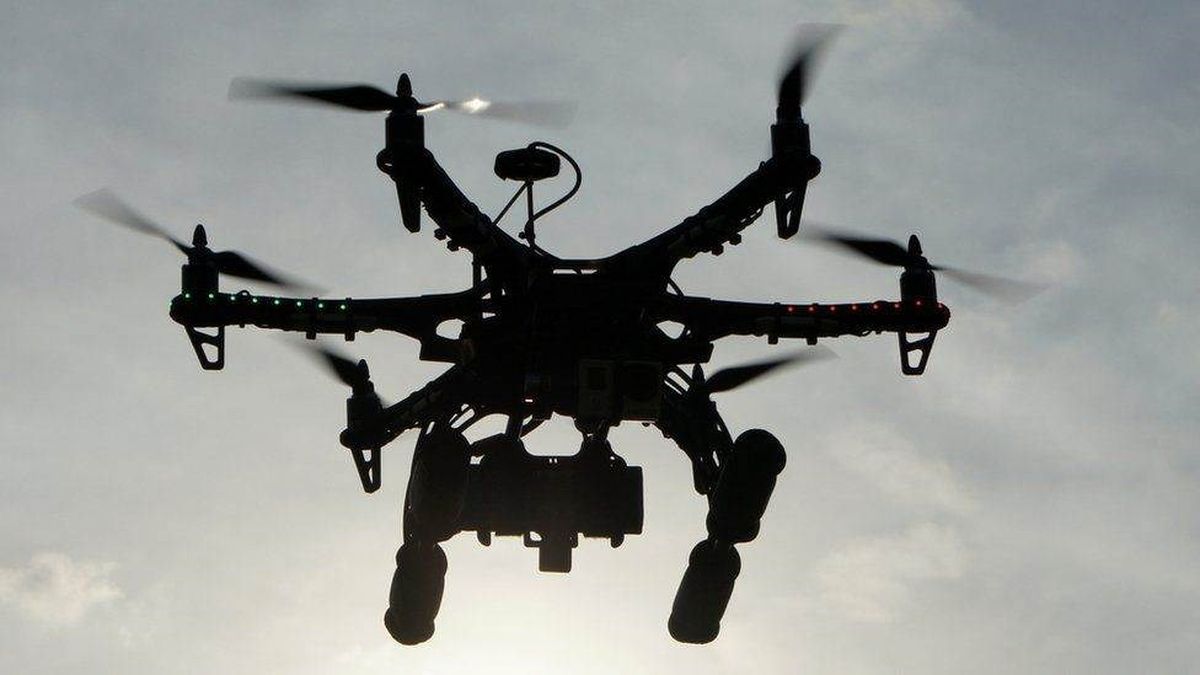Inside a tube attached to the technology device a bottle was traveling with potentially carcinogenic human tissue that had to be analyzed in the laboratory of the second center.
https://twitter.com/stijncoolbrandt/status/1179709496962228225
The first intra-hospital drone flight in Belgium was just executed successfully between Sint-Augustinus hospital and UZA!
Superb achievement of the #helicus aero initiative and a milestone for healthcare innovation #BeHealth pic.twitter.com/GUGJN8wCMD
— Stijn Coolbrandt (@stijncoolbrandt) October 3, 2019
That test flight, followed by three others throughout the day, is a first on European soil: for now, Helicus is the only community company that received authorization from Brussels to fly drones for medical purposes over a city and piloted remotely, out of the operator’s field of vision.
Drone.jfif
the tests, made with an apparatus of the Belgian manufacturer SABCAthey anticipated the approval of a new european regulations which is expected to arrive in 2023 to generalize this conveyance of human tissues.
Helicus bets on its commercial development and to do regular flights from 2024.
“The great advantage of drones is that they combine speed, reducing the average transport time, and regularity, because they guarantee logistical reliability,” explains Mikael Shamim, president of Helicus.
Device of the Belgian manufacturer SABCA.jfif

Health: drones to transport tissues
The leaders of the ZNA and GZA hospital groups are preparing for the entry into force of the new law.
“Delivery times are vital and the absence of traffic in the air ensures a reliable flight duration”says Els van Doesburg, president of the ZNA, noting that journey times could be cut in half.
The four laboratories of the two hospital networks take 1,200 tests each year during medical operations that must be urgently screened for cancer cells and thus determine how the intervention continues.
“The results should be ready in 30 minutes at the most,” says GZA hospitals pathologist Sabine Declercq.
For now, only transporting samples for analysis is on the table, but Helicus is already considering the possibility of transporting blood and even organs for transplantation. Although that will take years: with more volume, cooling elements would have to be added to the deviceShamim remembers.
Source: Ambito
David William is a talented author who has made a name for himself in the world of writing. He is a professional author who writes on a wide range of topics, from general interest to opinion news. David is currently working as a writer at 24 hours worlds where he brings his unique perspective and in-depth research to his articles, making them both informative and engaging.




